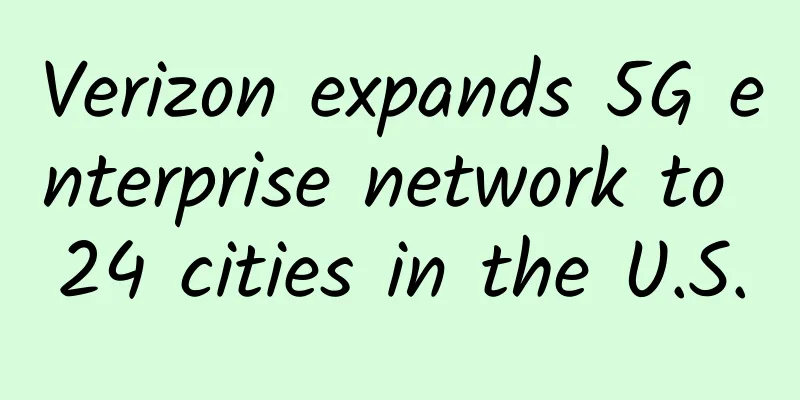5G cybersecurity market to reach $16 billion by 2028

|
The 5G network security market is expected to grow significantly at a compound annual growth rate of 41.82% and reach a valuation of $16.159 billion by 2028, up from $1.986 billion in 2022, according to a study by Knowledge Sourcing Intelligence. |
<<: 5G and the Internet of Things: Connecting Millions of Devices
>>: Cat6a FAQ Breakdown: Everything You Need to Know
Recommend
RAKsmart: Hot-selling servers starting at $46/month, US/Hong Kong/Japan cluster servers, 1-10Gbps unlimited traffic servers restocked
RAKsmart is a foreign hosting company operated by...
[Christmas] ColoCrossing 35% off: $2.57/month-1GB/25G SSD/20TB@1Gbps/Los Angeles & New York Data Center
I just shared the news of ColoCrossing's 25% ...
An overall introduction to the 5G protocol, worth collecting!
The technical specifications related to 5G NR are...
Wi-Fi 6 Development Status and Future Application Trends
Connections are given more profound value in the ...
UFOVPS limited 30% off, Japan/Hong Kong CN2 GIA/US high-defense VPS monthly payment starts from 26 yuan, top up 200 yuan and get 20 yuan
UFOVPS has launched a promotional event during th...
An Android hotspot APP actually sold more than 2 million WiFi passwords?
Recently, it was learned that an Android hotspot ...
SD-WAN vs. SASE? No!
The canonical definition of SASE includes five fu...
Edge Network Speed Requirements
In the previous article, we mentioned how to surv...
T-Mobile and Sprint to merge
Early morning news on February 11, 2020, accordin...
spinservers: $89/month - E3-1280v5, 32G memory, 1TB NVMe hard drive, 10Gbps bandwidth server
spinservers has released the latest July promotio...
If you think 5G technology is overhyped, wait for 5.5G to arrive
Less than half of UK 5G users say 5G offers impro...
Four trends will occur in the telecommunications industry in 2023
Greater emphasis on data Telecommunications busin...
Kunpeng spreads its wings in Guangdong and the Bay Area | Kunpeng and his friends propose new computing to empower government smart office
[[350382]] At 14:00 on the afternoon of October 3...
How does network automation simplify network operations?
In today's rapidly evolving digital environme...
Seven storage mistakes data centers make during consolidation
Mergers and acquisitions are commonplace in today...









